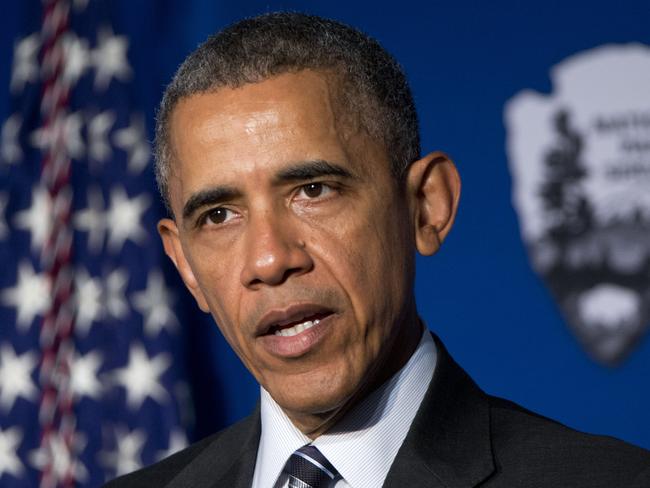Obama administration weighing ‘no first use’ policy on nuclear weapons according to reports
HE’S a man on a mission to cement his legacy. But one of Obama’s latest ideas has left other countries very worried about what it means for them.

OFFICIALS from the UK, France, South Korea and Japan have warned the Obama administration to ditch plans that could see the country adopt a “no first use” nuclear policy, according to reports.
President Barack Obama is said to be considering ideas for how to cement his contribution to nuclear non-proliferation as he approaches his final months in office.
Options include a “no first use” clause on nuclear weapons or plans for the Security Council to ban the testing of nuclear weapons, according to the Washington Post.
The President’s plans are expected to be announced to coincide with his final appearance at the UN General Assembly next month and could solidify his commitment to an end to nuclear proliferation first signalled when he took office in 2009.
It comes as 15 prisoners from Guantánamo Bay were sent to the United Arab Emirates — the largest single release in history — in an attempt to make good on another pledge to close the controversial jail he made when entering office.
However the potential the US could adopt a “no first use” policy on weapons has sparked alarm among allies and officials within the US government.
While the US is the only country to have ever used nuclear weapons, the “calculated ambiguity” the threat of a strike brings to international relations is seen as a key element of deterrence which has underpinned global foreign policy for decades.

An editorial in The Times called the move “Obama’s folly” and said “nuclear weapons are effective as a deterrent only if the West is prepared to use them”. It called such a decision a “step towards a less secure world” that is “destined to backfire”.
Such a decision would mark big changes for governments in Europe, Japan and South Korea who are some of the closest US allies or fall under its “nuclear umbrella” of alliances. There are fears it could lead other countries to develop weapons of their own if they are not assured of US support.
However those who support such a move say taking weapons off the table completely is the best way of ending nuclear proliferation — something Obama took a step towards with the Iran nuclear deal in January this year.
UK Labour leader Jeremy Corbyn is also opposed to the use of nuclear weapons and has said he would never use them if he becomes UK leader.
News of the potential change comes following the 71st anniversary of the Nagasaki bombing which killed 74,000 people in the initial explosion and thousands more in the following weeks.
The mayor of the city, Tomihisa Taue, criticised the Japanese government for advocating a ban on nuclear weapons but relying on US deterrence, calling it a “contradictory state of affairs”.
It also comes as traditional alliances have been thrown into doubt after Republican presidential candidate Donald Trump said he would not necessarily come to the aid of fellow-NATO members as tensions rise between Russia and Eastern European states.
Former state department official Joel Rubin told TheWashington Post it would not be in US interests to pursue a “no first use” policy at all costs.
“While the goal of a ‘no first use’ policy is correct — to never be the first country to launch a cataclysmic nuclear strike — doing so unilaterally could run the risk of weakening our allies’ confidence in our security guarantees,” he said.
The Australian government has been contacted for comment.



